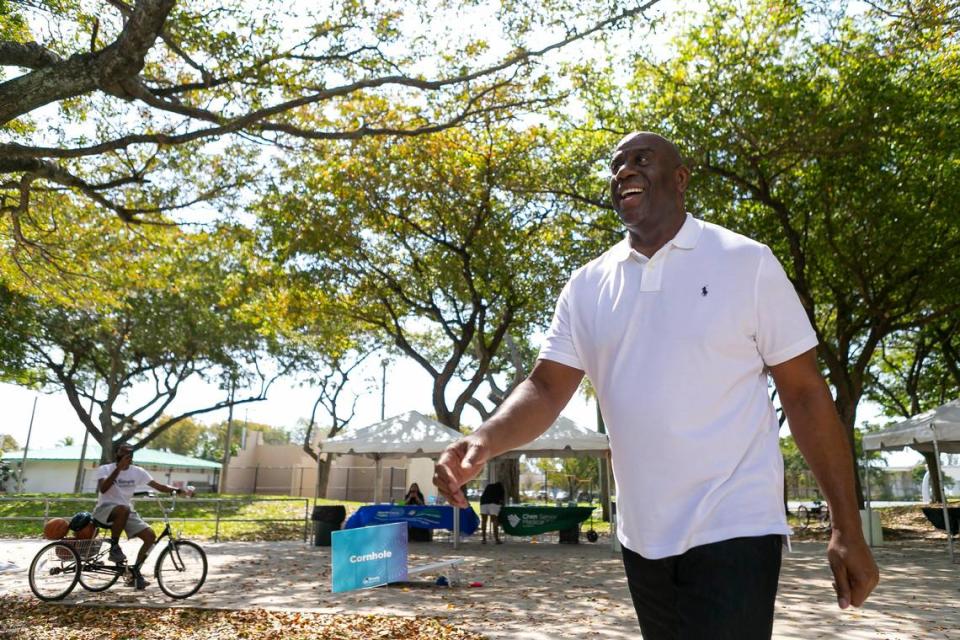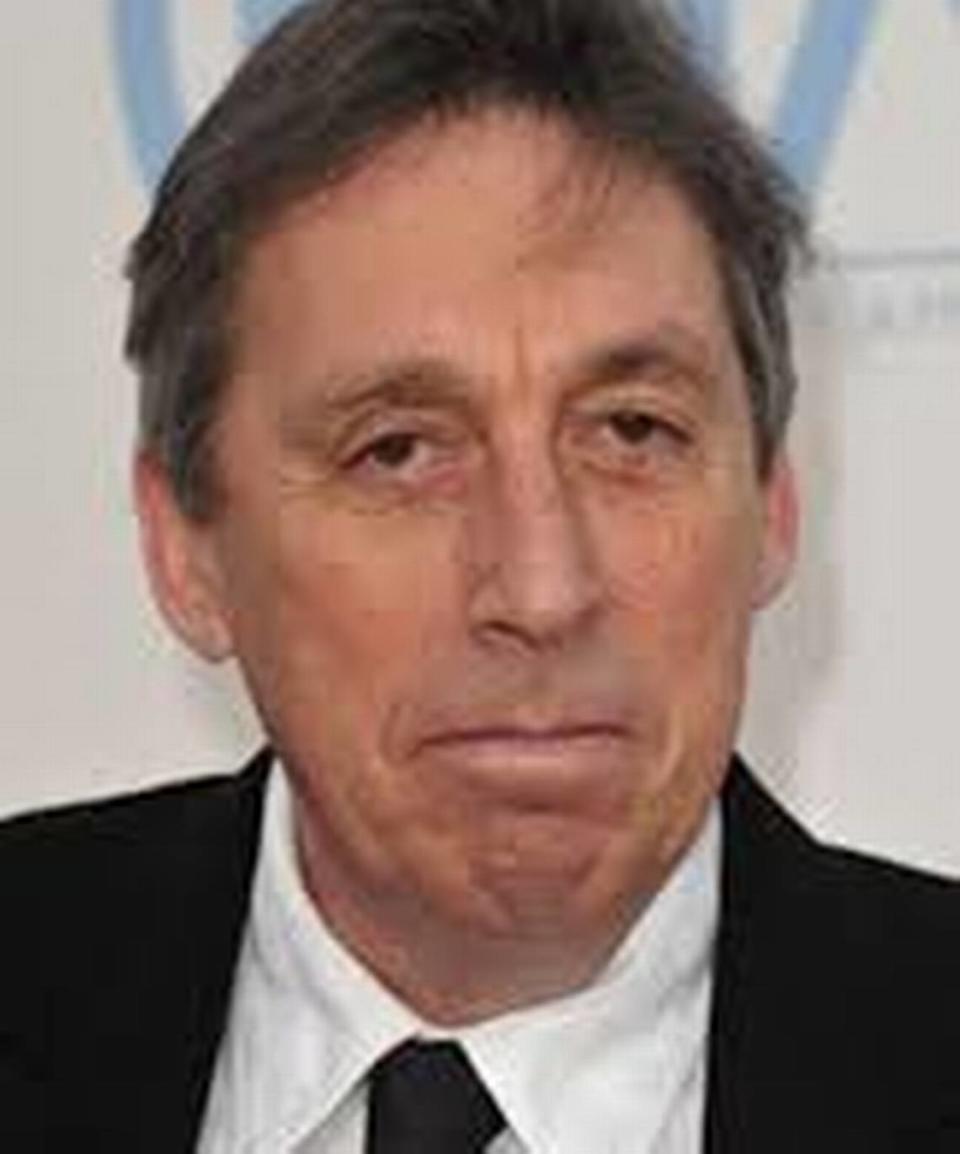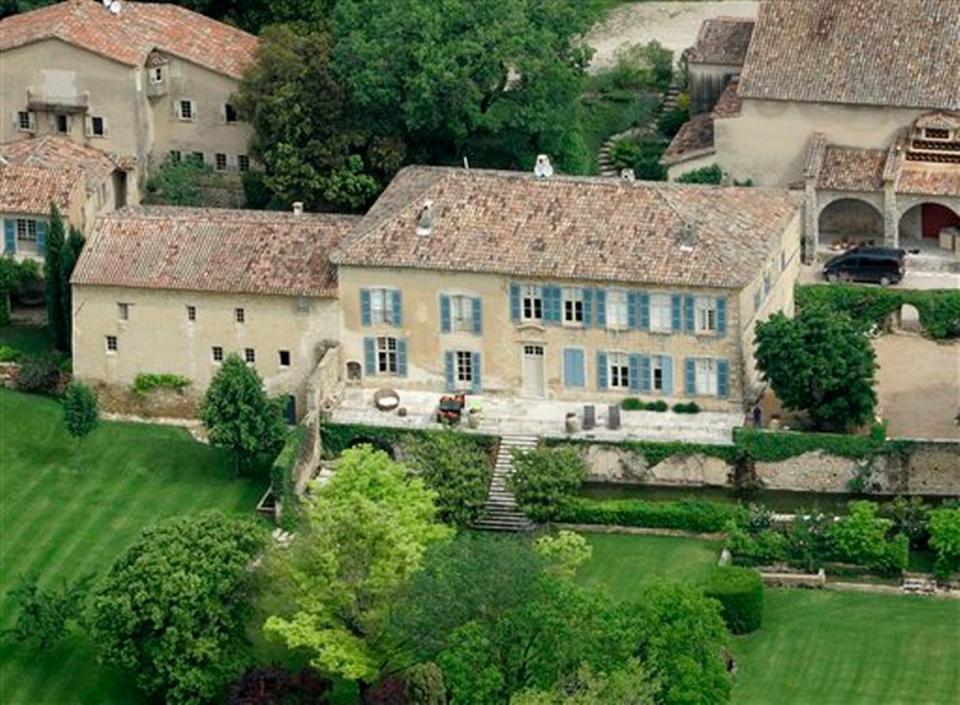From Magic to Tiger to Brangelina: Why rich, famous stash assets in this speck of a country
- Oops!Something went wrong.Please try again later.
- Oops!Something went wrong.Please try again later.
In the years since his playing days came to an end, basketball legend Earvin “Magic” Johnson has forged a name for himself as a successful businessman focused on urban revitalization.
He’s brought movie theaters and Starbucks coffee shops to underserved urban markets and parlayed those early investments into stakes in the Los Angeles Dodgers and the life insurance company EquiTrust.
But his business connections extend farther than previously known — thousands of miles farther, in fact.
Johnson is one of a cavalcade of the rich and famous, including golfer Tiger Woods, actors Angelina Jolie and Brad Pitt, and soccer star Cristiano Ronaldo, among them, listed as the owners of registered businesses in a most out-of-the-way place: the Grand Duchy of Luxembourg, a minuscule landlocked country in Western Europe.
It’s a way to minimize taxes and — until recently — maintain a high level of confidentiality.
Their names are now public thanks to a law that took effect in 2019 requiring Luxembourg companies to list their beneficial owners, those who have an actual financial stake in the company.
Miami has more than a passing interest in such places. As documented in the Panama Papers, a 2016 investigation, the city has been reshaped by the world’s wealthy, who sometimes use opaque shell companies like those in Luxembourg to cloak and launder their money so that it can flow freely into real estate and other investments in South Florida without being traced back. Unit after unit in the towers on Sunny Isles Beach, to name one location, are listed in the names of anonymous offshore limited liability companies. Offshore money plowed into newly built luxury high-rises has distorted the market, worsening a scarcity of affordable housing.
Because of how they historically shielded the identities of beneficial owners, Luxembourg corporations have also been used by some to circumvent the Cuba embargo and rout riches acquired in unstable countries like Venezuela into safe-haven shell companies.
And companies registered in the distant outpost have long taken advantage of a favorable business environment that allowed them to structure their finances so as to limit their taxes to minimal amounts.
There is nothing illegal about setting up shop in Luxembourg, and in some cases there are legitimate reasons for a company to hide the identity of its owners. But the benefits — as well as the secrecy — are being stripped away.
The Miami Herald and its parent McClatchy partnered with 17 media outlets, including Le Monde in France, Süddeutsche Zeitung in Germany and the Organized Crime and Corruption Reporting Project, as well as the nonpartisan Anti-Corruption Data Collective to analyze Luxembourg’s corporate registry, which contains more than 140,000 active companies, as part of a project called OpenLux. The registry cannot be searched by owner name, but is instead only searchable by company name, making it impossible to discover whether someone is a beneficial owner of a company in Luxembourg without knowing the name of the company in the first place. Le Monde scraped the data from the registry and shared it with partners last year.

The team found that the 140,000 companies registered in the tiny country, which has a population roughly equal to that of Louisville, Kentucky, held at least $6.5 trillion in assets at the end of 2019, 100 times greater than the country’s gross domestic product that year. Beneficial owners, those who own an actual financial stake in the company, listed in the directory hailed from 157 countries, with more than 1,200 Americans listed as beneficial owners of active companies in the registry. That includes more than 75 Americans on Forbes’ billionaire list, including industrialist Charles Koch, Dell founder Michael Dell, takeover specialist and Trump administration financial adviser Carl Icahn and Google co-founders Sergey Brin and Larry Page.
The public registry was established as part of a broader European Union anti-money laundering push in the wake of offshore leaks such as the Panama Papers and the earlier 2014 Luxembourg-focused Luxembourg Leaks. The latter shed light on the network of Luxembourg-based companies used by wealthy individuals and corporations to avoid taxes — and sometimes by criminals to launder illicit funds.
The global move toward transparency has even resulted in upcoming changes in one of the most notorious destinations for ill-gotten cash: the United States. The Corporate Transparency Act, which passed late last year, will soon require both domestic and foreign companies registered in America to report their true beneficial owners to the U.S. Treasury Department, though the information will not be accessible to the public.
With the global move toward transparency, Michael G. Pfeifer, a Washington, D.C., tax lawyer who specializes in complex financial arrangements for the uber wealthy and was previously a special assistant at the Internal Revenue Service, says he believes the days of wealthy individuals truly hiding their assets are numbered.
“People who want real privacy are up a creek without a paddle these days,” he said. “The games that people have played for many years, you’re going to see fall away. It’s getting harder and harder as the rest of the world and now even the U.S are looking more for transparency.”
Investment funds short on transparency
Many secrets still remain in Luxembourg. The OpenLux investigation found that thanks to loopholes and special exemptions, just under half of all the companies in Luxembourg’s business registry, especially investment funds, list no owner at all. That’s because the registry requires only the disclosure of beneficial owners holding a stake greater than 25%, which is a threshold few investors reach.
Many funds list the names of the managers of the funds, including Ken Griffin — the largest contributor to Gov. Ron DeSantis’ last campaign, who made headlines when he moved his New York trading operation to Palm Beach during the pandemic — and David Tepper, owner of the Carolina Panthers. They are among the major American fund managers whose names appear in the registry without listing any additional investors.
A joint analysis of the registry data by the nonprofit groups Anti-Corruption Data Collective and Transparency International found that 80% of investment funds listed no beneficial owner.
“We hoped that the newly created public beneficial ownership register would help bring more transparency to the industry — however, what we see now is that a major loophole related to how a “beneficial owner” is defined has hampered implementation,” said Maira Martini of Transparency International, a non-governmental organization that fights corruption. “This means that the end-investors, and actual beneficiaries of an investment fund, very often do not need to be disclosed.”
The former Los Angeles Lakers great Johnson’s appearance in the registry is also not quite what it appears. He is listed as holding a 36.73% stake in LCN European Fund and a 40.23% stake in LCN European Fund II, which collectively held $1.47 billion in assets according to their most recent filing with the U.S. Securities and Exchange Commission. All told, the stakes attributed to Johnson in the two funds were worth roughly $570 million as of March last year.
But Johnson himself did not invest in the funds. Rather, the life insurance company EquiTrust, in which his Magic Johnson Enterprises holds a controlling interest, invested in the two real estate funds.
“Magic Johnson doesn’t have any direct ownership in LCN. He has no involvement in the decision to invest in LCN,” said a spokesperson for EquiTrust who did not want to be identified.

The funds are managed by LCN Capital Partners, an investment fund that specializes in sale-leaseback and build-to-suit investments, whereby they purchase existing company headquarters or offices or custom-build new ones for companies and then rent them back to the company. The arrangement infuses the companies occupying the space with ready cash and gives them more flexibility even as the investment firm-turned-landlord stands to gain more in the long run.
The properties in the funds listing Johnson as a beneficial owner include the newly completed Amsterdam headquarters of the massive Dutch bank ING, the Łódź, Poland, office for Polish bank mBank and the European headquarters for American labeling company Avery Dennison, outside of Leiden, Netherlands.
Ahead of publication, the Luxembourg government posted a lengthy response online to the entire project, disputing claims that the corporate registry and the country’s anti-money laundering and combating the funding of terrorism [AML/CFT] policies had fallen short.
“Given that Luxembourg is fully compliant with and has implemented all applicable EU and international rules and standards with regards to tax transparency, the fight against tax abuse as well as AML/CFT — and even gone beyond these requirements — Luxembourg rejects the claims made in these articles as well as the entirely unjustified portrayal of the country and its economy.”
Lux luxury
The registry sheds light on freshly discovered relationships and relationships that have gone stale.
It shows that film director Ivan Reitman, best known as the director of “Ghostbusters” and “Meatballs,” is listed as a beneficial owner of a Luxembourg investment company called Donza, alongside heirs of the French luxury fashion house Hermès. The firm’s Luxembourg filings don’t indicate what the company’s holdings are, but its assets were worth more than 67 million euros, roughly $75 million dollars, at the end of 2019. Reitman did not respond to multiple requests for comment.

For movie stars Angelina Jolie and Brad Pitt, a Luxembourg holding is a holdover from happier times. While the couple are no longer legally married, they are still wedded to a Luxembourg company that in turn owns the Chateau Miraval estate in southern France, which the couple purchased in 2011 and which was the site of their 2014 wedding.
The estate contains a legendary recording studio, where artists such as Pink Floyd and Sting have cut albums, as well as one of the top-producing vineyards in France, well-known for its rosé, produced under the name Miraval. Its ownership has reportedly been a sticking point in Jolie’s and Pitt’s protracted divorce negotiations, which have continued even after the pair were legally split. The Luxembourg company Quimicum held 72 million euros in assets at the end of 2018, worth roughly $83 million dollars at the time. Under Jolie’s and Pitt’s ownership, the value of Quimicum’s holdings increased dramatically, nearly doubling in value between 2012 and 2013, from 29 million euros at the end of 2012 to 56 million euros at the end of 2013. The value of its holdings has steadily increased since.
Roland Venturini, president of the wine brand, confirmed that the Luxembourg company is the holding company for the estate and vineyard and said that the company structure was established by the estate’s previous owner.
“The Miraval group meticulously complies with all applicable legal and fiscal rules,” he said in response to questions about the company’s structure.
He declined to discuss the growth in the value of the company’s assets, saying they “concern the private domain.”
For investment funds or wealthy individuals who own overseas assets, holdings in Luxembourg can streamline — and ultimately reduce — their tax burden so that they pay taxes on the investment only once, and perhaps at a reduced rate, said Stephen E. Shay, a senior tax fellow at Boston College and former deputy assistant secretary for international tax affairs at the U.S. Treasury Department.
“Between Luxembourg and where the investment is — you’re trying to minimize taxes,” he said.
He argues that even if Luxembourg’s tax benefits aren’t as advantageous as they used to be, the business-friendly climate and favorable trade laws still make it an attractive offshore destination for the ultra rich, particularly in comparison to offshore destinations in the Caribbean or in far-flung destinations like Mauritius, an island nation in the Indian Ocean, that might not have similarly robust legal protections.

“When you’re at this level of money, your concern about rule of law outweighs marginal tax concerns,” he said.
Vanishing act
Despite that, the double whammy of the new transparency law — and the 2020 expiration of the special tax perks documented in the 2014 Luxembourg Leaks investigation — appears to have made a dent on the country’s popularity as a destination for global wealth: 2020 was the first year in the registry’s history that more existing companies left Luxembourg than new companies entered.
And when those companies leave, the names of their beneficial owners leave the registry, as well.
Take golf legend Tiger Woods. He was listed as the beneficial owner of a company called Parkridge Holdings, which was registered in Luxembourg on Christmas Eve in 2019 after previously being registered in the Netherlands for more than a decade.
The company filed one annual report showing that it held more than $218 million in assets at the end of 2019, more than half of which were shares in a company called Oakland Securities Limited, though the report doesn’t indicate where Oakland Securities is located. One month after filing the annual report in October 2020, the company was dissolved and reincorporated elsewhere.
At that point, Woods’ legal name, Eldrick Tiger Woods, vanished from the Luxembourg registry, though the OpenLux team had captured it before it disappeared. The corporate documents that remain on file make no mention of the golfer. Representatives at Woods’ investment company and foundation did not respond to multiple requests for comment.

The same thing occurred with a company beneficially owned by soccer great Cristiano Ronaldo. His CRS Holding was deleted from the registry in May 2020 and, with it, so went the record of his beneficial ownership.
While there’s no indication that the removal of Ronaldo’s or Woods’ names was improper, the ability for people to effectively remove themselves from the registry poses a challenge to investigators trying to track down potential money laundering after the fact, said Thom Townsend, executive director of Open Ownership, a British organization that advocates for greater transparency.
“It’s an enormous loophole if information can disappear from one day to another,” Townsend said. “From an investigative perspective, historical records are critical in the chain of evidence. What we have seen in the Panama Papers is that corrupt actors change ownership fairly regularly, to avoid a person being traced.”
Woods’ case, however, is illustrative of the degree to which transparency rules have now spread. The business registry in his company’s new home, the Republic of Malta, lists an Eldrick T. Woods as the 95% owner of the company.

